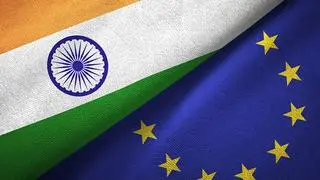Brazil, Australia and Guatemala’s request for a dispute settlement panel at the World Trade Organization (WTO) against India’s sugar subsidies will be examined by the dispute settlement body (DSB) in its meeting next week.
“India is likely to block the request for a panel when it gets taken up by the DSB in its meeting on July 22 as it believes that it has not violated multilateral rules. Since the dispute is moving on the normal track and not the expedited track, India is allowed to block the request once,” an Indian official close to the development told BusinessLine .
While the WTO allows panel requests to be blocked by the affected member once, if the complainants persist and give the same request a second time, the panels are set up and the cases are fought.
Australia and Brazil, in their requests for consultations in March, had said that most subsidies to sugar producers in India violated WTO rules. “…the amount of support to agricultural producers is in excess of India’s product-specific de minimis level of 10 per cent for sugarcane,” Australia said in its submission.
Several subsidies such as the State-level export subsidy for sugar, federal-level assistance and export incentives (raw sugar export incentive scheme), and freight assistance were inconsistent with the Agreement on Agriculture (AoA) as they appeared to be export subsidies, it argued.
Brazil had complained about India almost doubling the Fair and Remunerative Price for sugarcane from ₹1391.2 per tonne in 2010-11 to ₹2,750 per tonne in 2018-19 and pointed out that mandating the mills to export 5 million tonnes of sugar in 2018-19, had led to substantial pricing pressures on world market prices.
Guatemala, too, in its complaint had claimed that the domestic support measures for sugar in India are inconsistent with obligations under the WTO’s AoA, while the alleged export subsidies are inconsistent with India’s obligations under the AoA and the Agreement on Subsidies and Countervailing Measures (SCM Agreement).
“Since the consultations did not result in a mutually satisfactory outcome, all three complainants asked for a dispute panel,” the official said.
In its argument for blocking the request for the panels, India is likely to point out that most of its subsidies to sugar producers were in the form of production subsidies that were permissible under the WTO.
Moreover, the subsidies to exporters given for exports were for transportation and marketing purposes which, too, were permitted by the WTO.








Comments
Comments have to be in English, and in full sentences. They cannot be abusive or personal. Please abide by our community guidelines for posting your comments.
We have migrated to a new commenting platform. If you are already a registered user of TheHindu Businessline and logged in, you may continue to engage with our articles. If you do not have an account please register and login to post comments. Users can access their older comments by logging into their accounts on Vuukle.